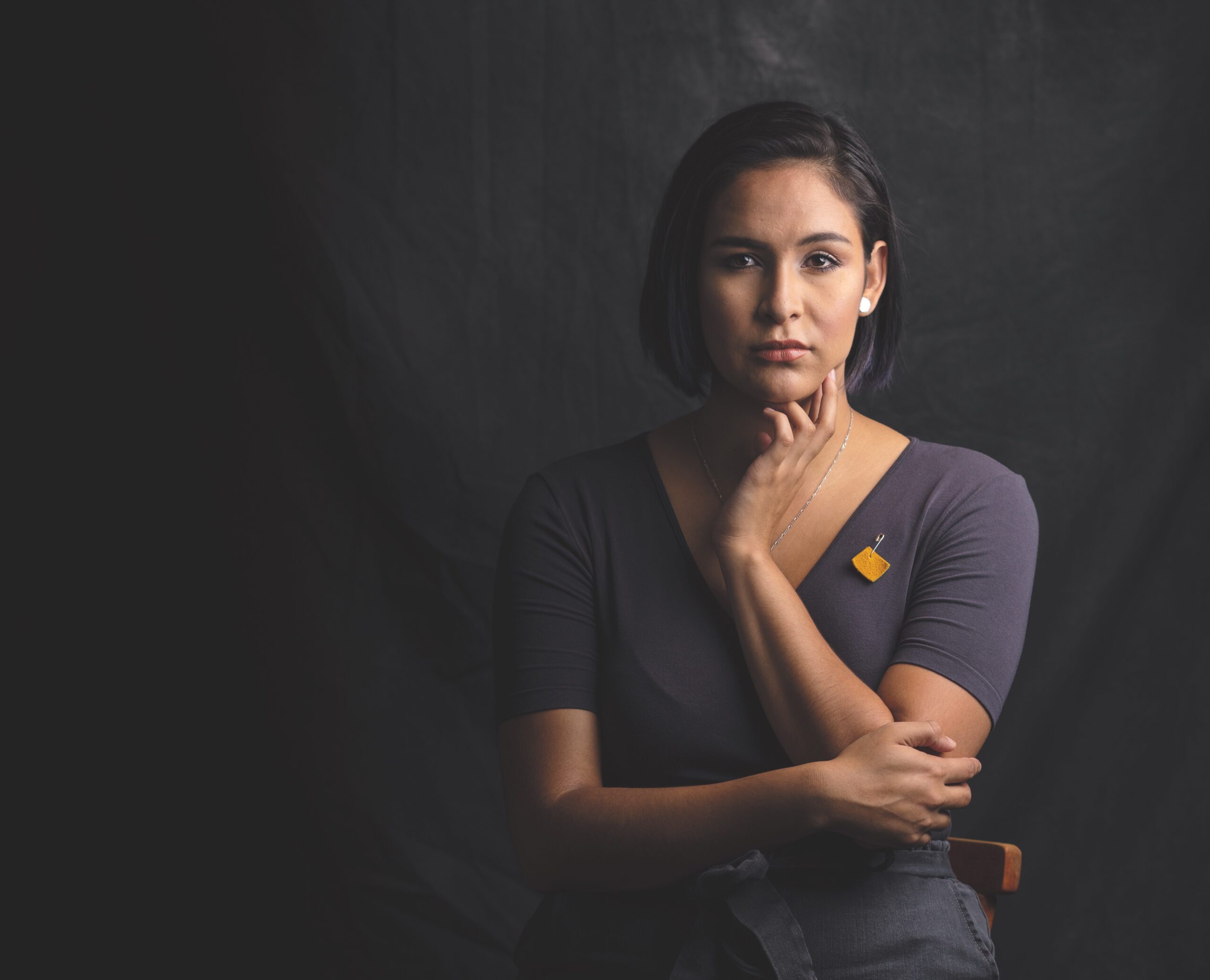When Raven Lacerte went on an annual visit with her father to Carrier territory to reconnect with her roots and hunt moose, she noticed several things. First was her community’s proximity to the Highway of Tears and how many women and children in Canada feel unsafe. Second was how powerful the medicine of the land is. Finally, she was struck by the importance of love, connection, pride, culture, and ceremony in leading a happy and healthy life.
“We were talking about what our family could do,” Lacerte said, “as our contribution to helping to end that violence against women and children.” As she cleaned out a moose they shot on that trip, she wondered, could they use this hide as medicine?
You may unsubscribe from any of our newsletters at any time.
That was in 2011. Then-16-year-old Lacerte and her father, Paul, started The Moose Hide Campaign, a national initiative combatting violence against women and girls with a focus on Indigenous communities. They have already distributed more than two million moose hide pins, primarily to men who wear them as a symbol of their commitment to end gender-based violence.
Lacerte spoke with Broadview’s Glynis Ratcliffe.
Her inspiration: I was very aware that my Indigenous background makes me six times more likely to be a target of violence. It’s really a hard thing, constantly living in fear because of the colour of my skin and who my ancestors are. I always saw that injustice in the world and I really wanted to do something about it. I come from a healthy family that is rooted in culture and I can see the positive effect that has on people. I really just wanted to share the love that I have and wanted to help bring people into that space of healing, making sure that our women are loved and protected at all times.
It’s very personal: A few of our family members have been murdered. Most recently, one of my cousins in 2018. [This violence] very much affects me and how I see the world and what I want for the world.
More on Broadview: Artist calls out Indigenous stereotypes with very public work
Family ties: I had my dad as a mentor. He helped guide me through this whole process of learning how to be a co-founder of a campaign that’s all about heart and welcoming people. My daughter is a huge part of my medicine, and my partner is heavily engaged in the campaign as well.
Inclusivity: We call The Moose Hide Campaign an Indigenous innovation for all Canadians. I think lots of people can get turned off by an Indigenous innovation and not know where their place is in it. But this is an issue that affects us all. It’s ending violence towards women and children, all women and children, and with a special focus on Indigenous women. And we’re calling on all men and all people. Not just Indigenous men. We’re calling on all people to join them. It’s not just an Indigenous issue, it’s an everyone issue and we all have a place in this and we can all take this stance. I think it’s good to just make sure people feel like there’s space for them in this and that they can see themselves in this campaign and know they are welcome always.
The MMIWG inquiry: People don’t know what to do with it. This is one tangible thing that folks can grab onto and really use to help any further healing. Anything can happen from that.
What’s next: I want to do every single possible thing I can to make sure my daughter is loved and protected and respected. It’s such a deep desire to make sure she lives to her full potential.
This interview first appeared in Broadview‘s November 2019 issue with the title “Raven Lacerte.”
Broadview is an award-winning progressive Christian magazine, featuring stories about spirituality, justice and ethical living. For more of our content, subscribe to the magazine today.














